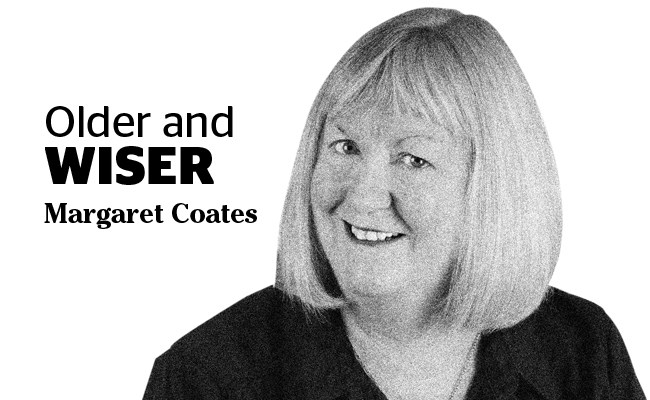Maintaining healthy teeth and practising proper mouth hygiene is critical for seniors’ well-being.
But some research and some seniors say it is harder to care for their teeth and mouth as they age.
This is due to a number of factors including: low to moderate income levels, reduced or no access to dental plans, cognitive impairment, disabilities such as arthritis, and living in a long-term care seniors’ facility.
Caring for our teeth and mouth is as important to seniors as they age as it was when they were children being admonished to brush their teeth before going to bed.
The Health Canada website says: “Oral health is not only important to your appearance and sense of well-being, but also to your overall health.
Cavities and gum disease may contribute to many serious conditions, such as diabetes, and respiratory diseases. Untreated cavities can also be painful and lead to serious infections.”
Compromised oral health can be linked to sleeping problems and ability to chew and digest food properly, and we know a good diet leads to overall health benefits for seniors.
Oral health is important at all stages of life, but especially for older adults and seniors who are keeping their teeth longer than ever before.
Generally, good oral health means seniors keeping their teeth free from cavities and preventing and dealing with gum disease.
However, older adults also have concerns that younger adults do not.
These include caring for dentures, having trouble holding a toothbrush, gum disease, tooth decay on the roots of teeth, and replacing missing teeth and broken fillings. Some seniors who have lost teeth through lack of care can become isolated because of the shame of missing teeth.
Some seniors feel like a burden to their families if they need help to pay for dental care.
The Health Canada website lists ways to maintain good oral health including; brushing and flossing your teeth daily; using an antimicrobial mouth rinse to help to reduce the bacteria in your mouth; visiting your dental professional regularly to have your mouth examined; seeing your dental professional immediately if you notice any problems; eating a healthy diet; and quitting smoking (but if you do smoke, make sure to visit your dental professional regularly).
It seems most of these measures listed above are doable for seniors.
But, unfortunately, as seniors age they often have trouble maintaining good oral health.
Seniors may not be able to afford dental care as they often don’t have access to a dental plan.
Disabilities such as arthritis make it difficult to care for their own teeth, and conditions such as dementia can compromise their ability to remember to care for their teeth.
The Health Canada website says: “Seniors living in long-term care facilities are at particular risk of complications from poor oral health because of frailty, poor health and increased dependence on others for personal care.
In many cases, oral health problems in residents go undetected until there are acute symptoms, such as pain or infection.”
British Columbia is the worst place in Canada for accessing affordable dental care for seniors, according to the Older Women’s Dialogue Project found at bcli.org/ccel.
Most of the provinces and territories provide some level of dental care for low-income seniors.
In British Columbia, seniors have very few options.
The Seniors First BC website (seniorsfirstbc.ca/getting-help/seniors-benefits-and-programs/low-cost-dental-programs/) lists a few discounted dental programs for low-income seniors.
However, these are all in Vancouver – there appears to be nothing available on the North Shore.
One North Shore senior I am in touch with says that in his search for dental services, the dental offices he spoke with work from a set pay schedule.
He says, “there appears to be no consideration given to income or any degree of compassion.”
HealthLink BC, which looks at dental care for older persons, suggests ways for seniors to care for their dentures, how to use a tooth brush if they have disability and general tips for caring for their teeth and gums.
They also suggest negotiating with a dentist for a lower rate and maybe for a payment plan.
As the senior I was in touch with said though, “Ideally dental care would be covered under the B.C. Medical Services Plan.”
It’s not just flashing your pearly whites, it’s your overall health that you are protecting.
Margaret Coates is the co-ordinator of Lionsview Seniors’ Planning Society. She has lived on the North Shore for 48 years and has worked for and with seniors for 20 of those years. Ideas for future columns are welcome Email: [email protected].



